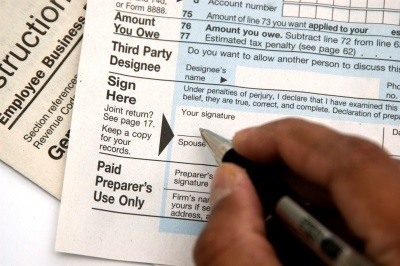Adjusted gross income (AGI) is one of the most important figures on Form 1040. This amount determines your applicable tax rate and, by extension, your actual tax liability for the year. However, many taxpayers are unfamiliar with how adjusted gross income is calculated, which means that they may not be aware of how their AGI amount fluctuates from year to year. Knowing how to calculate your AGI can help you prepare for your taxes based on the potential change in the amount of income tax you owe.
How to Calculate Your Adjusted Gross Income
Tax Guidelines for Work Study Employees
College students have been using work study as a way to earn additional income for school for many years. While work study provides a regular stream of income, it is not actually classified as a job because it is a form of financial aid provided for needy students. Despite this classification, though, receiving work study income can have an impact on your federal income tax liability at the end of the year. For this reason, it's important to know why work study is significant and how to include this school related tax on your tax form.
What is a Tax-Free Bond?
If you follow financial news, you may have the heard the phrase "tax-free bond" used quite often. Some news reports discuss that investors are purchasing tax-free bonds in droves to take advantage of rising interest rates. What is a tax-free bond? Why would it be beneficial for the interest rate on these bonds to rise? Are there any risks in purchasing tax-free bonds? Do I need assistance managing tax free bonds?
How to Deduct Business Travel Expenses
taxpayers are required to travel during the course of their employment. While the IRS allows individuals to write off business expenses related to travel, doing so can be a veritable minefield of tax issues, meaning you may need assistance from IRS Revenue Officers. For example, can you deduct the cost of gas if you're making a stop along the way to go sightseeing? What about engaging in pleasure while you're away on business? Is there any way to prevent being audited by the IRS for claiming travel expenses? To answer these and other questions, here's an introduction to help you learn how to write off business travel costs.
Tax Credits vs. Tax Deductions: What's the Difference?
Around tax time, it's common to hear phrases such as "tax deduction" or "tax credit" being used interchangeably. While it can be easy to assume that tax deductions are tax credits are the same, they're actually different and they affect your tax liability in different ways. Which one is best to use on your tax return? Here's a primer on the difference between a tax deduction and a tax credit.
What is the IRS Offshore Voluntary Disclosure Program?
The IRS has instituted a special program called the Offshore Voluntary Disclosure Program (OVDP). Under the terms of this arrangement, taxpayers who have been hiding assets may be able to report these activities to the agency and avoid being criminally prosecuted by the IRS. However, there are several conditions for receiving amnesty under the OVDP and any taxpayer who is considering applying should do so only after investigating the entire program and its requirements.
The Comprehensive Guide to Home Business Tax Payments
If you operate a home-based business, you're probably familiar with the large number of home office expenses you can deduct. However, one of the most valuable deductions available to self-employed taxpayers may also pose the highest number of tax pitfalls: the home office deduction. Due to some IRS problems with tax audits in the past, some taxpayers who are legitimately entitled to claim this deduction refrain from doing so. To be clear, people who are qualified for the home office tax deduction should use it, but they must make sure that their records and use meet the IRS guidelines.
5 Fun IRS Tax Facts
Tax day is a source of dread to many people, which is why so many taxpayers neglect to file their taxes until the very last minute. If you'd like to look at the lighter side of the tax code, here are five fun tax facts to take your mind off your potential tax bill.
Working for yourself can be a great way to earn a living. You may enjoy greater freedom about when and where you work or about the field in which you work. If you plan it carefully, you might even get to pick a career that you truly love. However, taxpayers who work for themselves can also fall into complicated tax scenarios, especially when they pay for costs that benefit them both personally and professionally. To avoid dealing with IRS tax audits, it's important to learn how to keep your personal and business taxes separate.
3 Tax Forms Every Self-Employed Home Business Owner Needs
Home business owners are responsible for keeping up with several income tax forms each year. Depending on the type of business they operate, these entrepreneurs may have to file many forms and schedules along with their Form 1040. Since each form carries a separate set of instructions, the thought of learning how to complete them all can be overwhelming.
SUBSCRIBE VIA EMAIL
POSTS BY TOPIC
- Tax Tips and Help (285)
- IRS Collections (121)
- IRS Audit (72)
- Tax Credits and Deductions (70)
- Tax Resolution (62)
- Business Taxes (54)
- Back Taxes (48)
- Wage Garnishment (21)
- Tax Levies (19)
- IRS Payment Plans (15)
- Tax Liens (14)
- Offer in Compromise (9)
- Unfiled Tax Returns (9)
- IRS Tax Attorneys (7)
- Asset Seizure (6)
- Tax Evasion (6)
- Criminal Tax Defense (4)
- Innocent Spouse Relief (4)
- Alimony (1)











